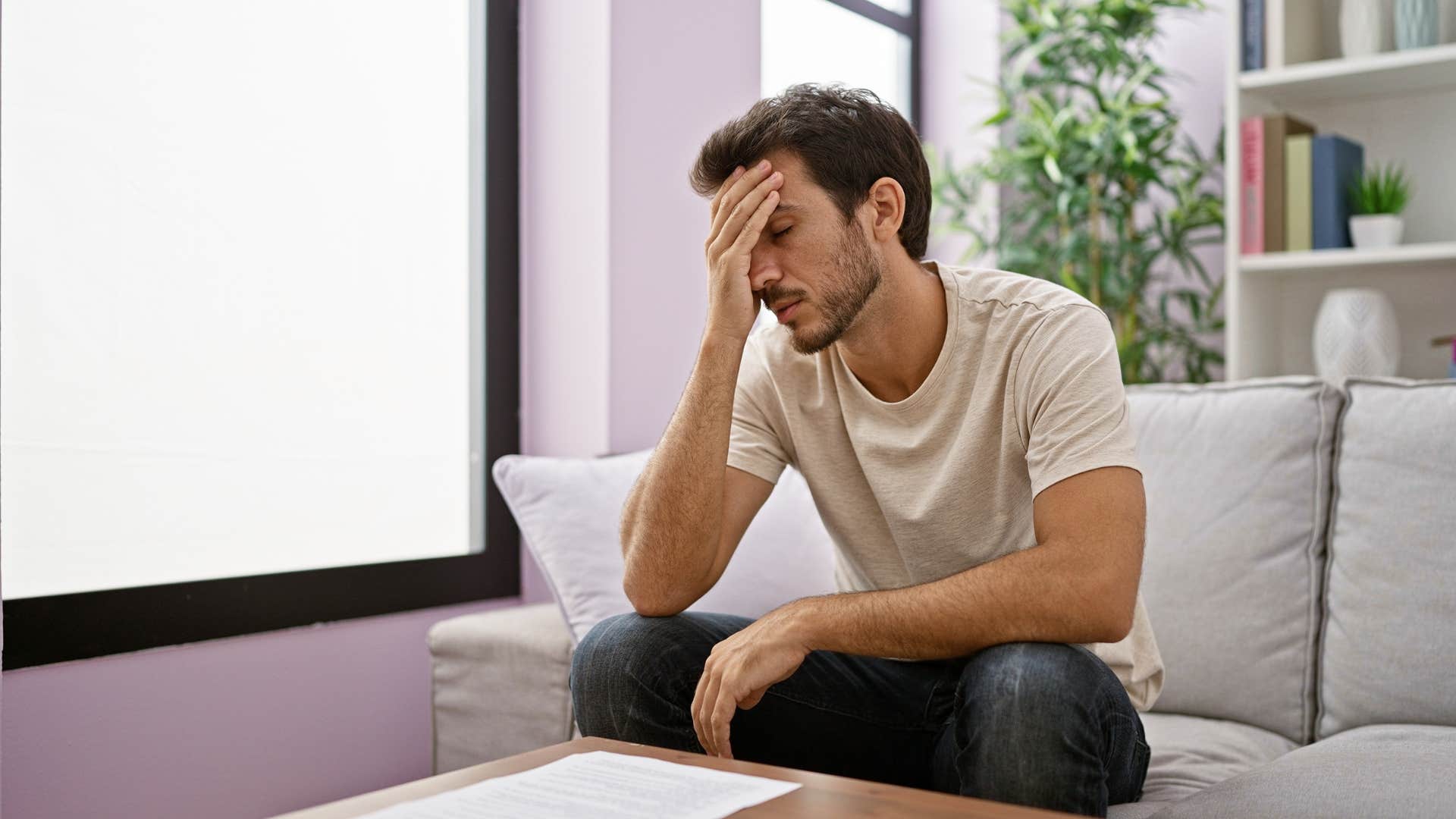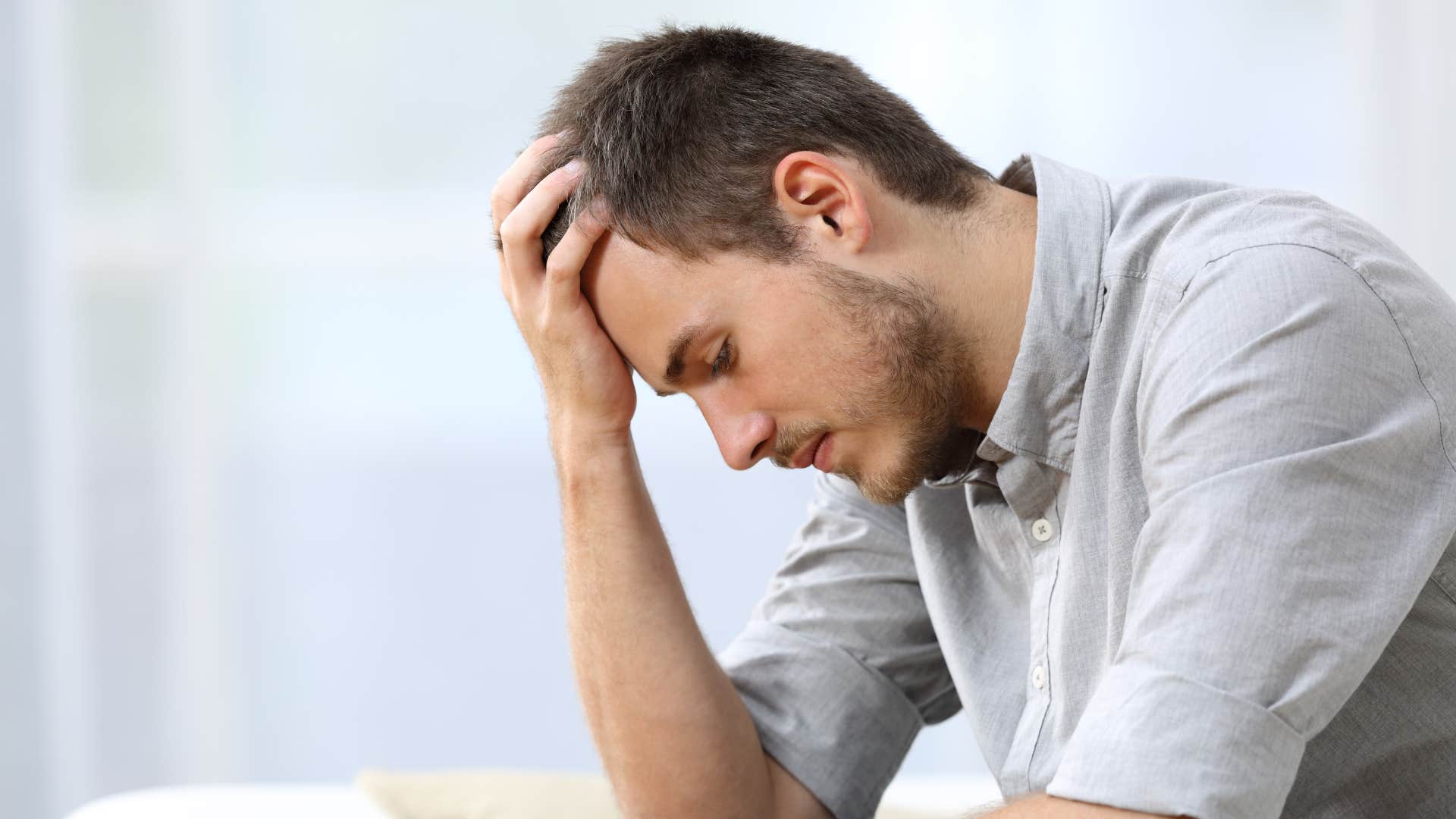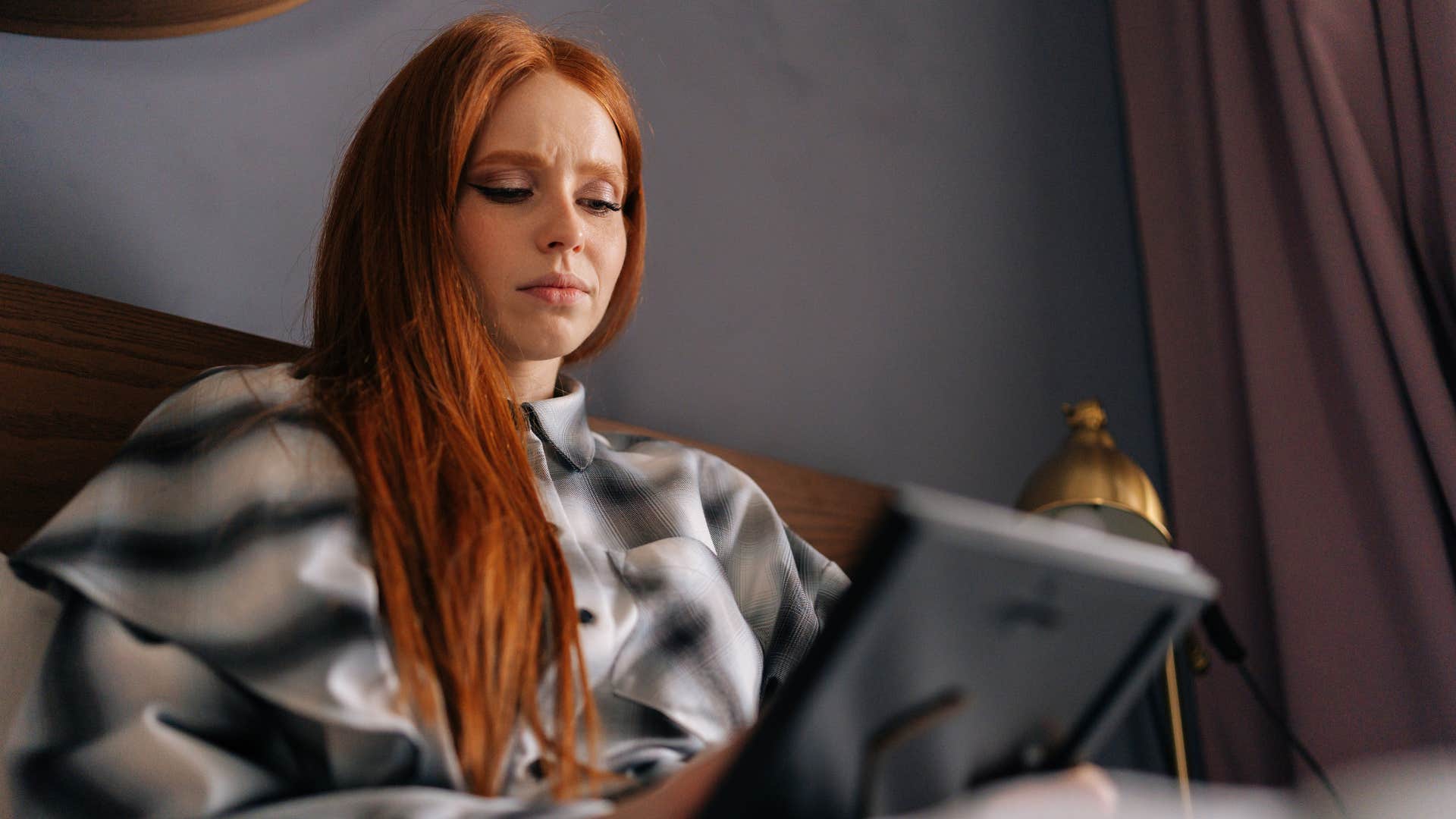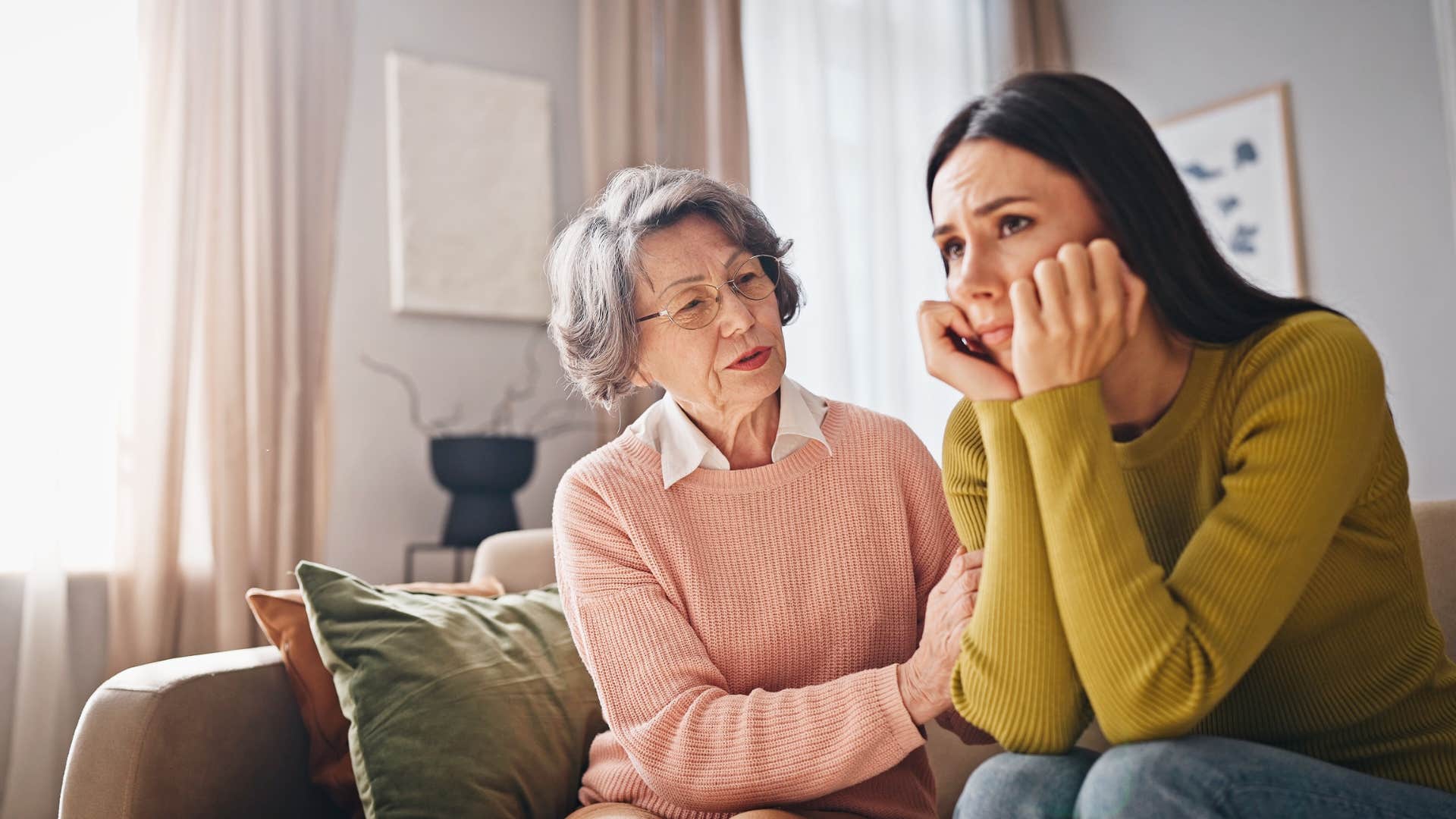If You Grew Up Middle Class But Feel Poor As An Adult, You're Probably Having These 11 Experiences
You're probably yearning for the financial stability of your childhood.
 Max4e Photo | Shutterstock
Max4e Photo | Shutterstock Many adults experience a loss of control later in life when they've grown up poor, according to a study from the Journal of Personality and Social Psychology, but when they grow up middle class, then fall into poverty, it can be similarly disillusioning. Even if their middle class parents complained about or seemed to struggle with money, they paid the bills, which felt like an inevitable truth for everyone.
Of course, struggling to pay bills and manage expenses is becoming steadily more difficult for everyone, according to the FINRA Investor Education Foundation. But if you grew up middle class but feel poor as an adult, you're probably having certain unique experiences. From grappling with guilt to feeling pushed to "give up" certain luxuries you had as a kid, your life as an adult feels miles apart financially from the one you enjoyed as a kid.
If you grew up middle class but feel poor as an adult, you're probably having these 11 experiences
1. You dread unexpected expenses
 Krakenimages.com | Shutterstock
Krakenimages.com | Shutterstock
Whether it's your car making a weird noise or something in your home breaking unexpectedly, if you grew up middle class but feel poor as an adult, you're probably experiencing dread over random expenses all the time.
In fact, according to Harvard's Joint Center for Housing Studies, lower-income households are most burdened by unexpected home repairs and often forced to push things off or focus on extreme necessities, even when they don't necessarily have the money to fix any of them. Your home probably feels more like a burden and a "money pit" than a safe space to recharge and relax.
2. Vacations feel impossible
 goodluz | Shutterstock
goodluz | Shutterstock
Even if you spent a lot of your childhood traveling and building strong memories going on trips with your family, if you feel poor as an adult, this is probably one of the things that went from "inevitable" to "never."
Vacations feel like an impossible luxury and status symbol now, considering debt is largely the only way you have access to taking them. With workplace and income demands and rising prices for airline tickets and hotels, travel is largely for the rich now.
3. You check your bank account constantly
 DimaBerlin | Shutterstock
DimaBerlin | Shutterstock
If you grew up middle class, chances are you never had to worry about asking for money or being forced to siphon money from your parents' wallet to pay for groceries every weekend. But if you feel poor as an adult, checking your bank account and budgeting down to the dime for basic necessities feels like a daily practice.
Of course, one-third of low-income Americans are living paycheck to paycheck, but even more are unable to even afford that, considering they can't afford all of their necessities and bills on a month-to-month basis.
4. You feel a constant sense of shame
 Antonio Guillem | Shutterstock
Antonio Guillem | Shutterstock
Whether it's embarrassment when you have to turn down social plans over money or grappling with internalized shame from the experience of poverty, if you grew up comfortably in the middle class but feel poor as an adult, you're probably having these experiences.
Like a study from the Journal of Poverty explores, there's a strong link between a shame-filled experience of poverty and low self-esteem. Poverty is nuanced in so many ways, so it's not surprising that it affects every avenue and aspect of a person's life.
But even on the emotional level, that so often goes overlooked in the framework of paying tangible bills and managing money, it plays an incredibly strong role.
5. You crave the little comforts of your childhood
 bbernard | Shutterstock
bbernard | Shutterstock
From clean matching towels to comfort fast food meals, and even spending time together on a "sick day" when everyone had the freedom to take time off from work, if you grew up financially comfortable, but feel poor as an adult, chances are you often crave these little childhood comforts often even though they're out of reach.
Especially in the U.S., where poverty is generally "uncomfortable" for everyone to experience, these small self-soothing behaviors and comforting material goods hold a lot of power for hope. Even if they're not something that financially well-off people think of as anything other than inevitable, for people living in poverty, they're a sore sight of nostalgia and, sometimes, hope.
6. You struggle to throw things away
 megaflopp | Shutterstock
megaflopp | Shutterstock
If you grew up middle class, but feel poor as an adult, chances are you've quickly adopted a kind of "survival mindset" that's keeping you from throwing things away. Even if it seems strange and obscure, you hoard random things "just in case" or to protect a future version of yourself from having to overspend.
From clothing that no longer fits to food you'll eat, you struggle to throw things away, because there's a chance that you might need them.
7. You miss when going out to eat wasn't a special occasion
 Drazen Zigic | Shutterstock
Drazen Zigic | Shutterstock
According to a report from Restaurant Dive, more than one-quarter of low-income households have stopped eating out completely, struggling with financial strain that even makes buying and cooking food at home difficult.
While the convenience of affordable food outside the home can really help people living in poverty, many no longer have access to it, and rising prices have even made fast food unaffordable for most.
8. You try to harness gratitude, but often feel hopeless
 Andrii Iemelianenko | Shutterstock
Andrii Iemelianenko | Shutterstock
Especially watching and interacting with other people living in poverty who didn't have the comfortable childhood you had, it's sometimes easy to lean into gratitude. However, other times, when bills are around the corner and you're pushing off a grocery trip to afford them, it's harder to feel anything but hopeless.
According to a study from Applied Research in Quality of Life, social support is often a strong predictor of gratitude for people living in poverty, especially in young adulthood. So if you're experiencing hopelessness all the time, chances are loneliness and social isolation also play a role.
9. You feel wildly nostalgic
 Dikushin Dmitry | Shutterstock
Dikushin Dmitry | Shutterstock
While nostalgia can sometimes prompt greater feelings of security and self-esteem, wishing for and reflecting on when things were "better" in the past can actually heighten anxiety and worsen personal growth for many adults, according to experts from the University of Florida.
Especially if the material things and comforts they felt are unaffordable and unreachable for them today, the nostalgic longing can be even further amplified. With enough money or with the right job, they could find that feeling again, so every day where they're stuck in stagnancy is a reminder of what they're missing.
10. You feel a pressure to justify your struggle to your parents
 M_Agency | Shutterstock
M_Agency | Shutterstock
Especially for parents who still live relatively financially unstable lives and don't experience the shifting economy and the new-age struggles of so many adults today, it's possible that adult children living in poverty feel pressured to prove and justify their struggles.
They're always spending so much energy breaking down their costs and defending the economic challenges they're faced with on a daily basis, when social support and genuine quality time is what they actually need to feel better.
11. You want comfort, not wealth
 Roman Samborskyi | Shutterstock
Roman Samborskyi | Shutterstock
If you grew up middle class but feel poor as an adult, chances are your dreams and financial goals as a kid look much different than they do now. Maybe, as a teenager, you dreamt of winning the lottery or getting a really well-paying, prestigious job. Now, you're more focused on being comfortable and finding financial stability than on any of that.
Stability is often the thing that most people in poverty are missing — whether it's an insecure job, an inability to pay bills, or a general sense of emotional unease about unexpected life changes and expenses. Living constantly on edge is exhausting, so it's no wonder that missing and wanting comfort is more important than sheer wealth.
Zayda Slabbekoorn is a senior editorial strategist with a bachelor's degree in social relations & policy and gender studies who focuses on psychology, relationships, self-help, and human interest stories.

